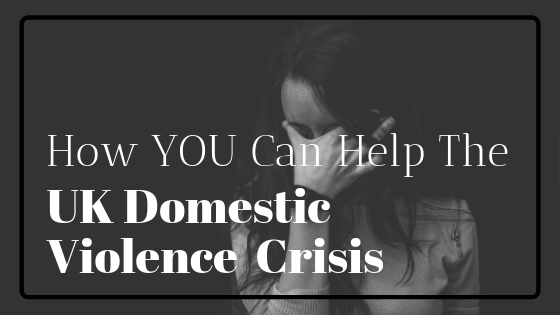Domestic violence rates are on the rise in the United Kingdom, and this uptick in relationship abuse (relationship abuse can be social, physical, sexual, and/or emotional, it should be noted) has resulted in a corresponding increase in the willingness of third parties and sufferers to make domestic violence an issue of the past.
Stated in short, knowledge and understanding are the most effective means of combating domestic violence, and in turn, additional knowledge and understanding of DV will produce meaningful change for those who have been sucked into abusive relationships.
To help these individuals and those who wish to provide assistance to sufferers, let’s take a look some simple and effective ways to combat the domestic violence epidemic in the UK.
Gauge Immediate Physical Threats
All forms of relationship abuse are devastating, but it’s imperative that victims of abusive relationships be on the lookout for immediate physical threats.
It can be difficult to objectively determine whether or not physical danger is imminent, but maintaining a clear head and taking an impartial look at a situation is advisable. Clinics, shelters, friends, family members, and many others will undoubtedly be willing to help with accommodations—and the underlying abusive relationship—if the threat of violence is apparent.
Domestic violence’s severity and frequency can be minimized if immediate physical threats are gauged and responded to.
Seek Support
In abusive relationships (or potentially abusive relationships) where the threat of physical danger isn’t great, emotional support should be sought by sufferers. Friends and family members can provide clear-eyed analyses of situations, but therapists, counselors, and other professionals are strongly recommended for those who are (or believe that they might be) victims of domestic violence.
Be Caring and Attentive
This suggestion is more for the initially mentioned third parties who wish to eradicate domestic violence—those who don’t necessarily suffer from DV personally, but who want to end it once and for all.
If someone looks to be in trouble and/or if any warning signs of domestic violence are observed, simply ask the individual at-hand how he or she is doing. The vast majority of DV sufferers want someone to talk to, and furthermore, the vast majority of DV sufferers will respond positively to third-party help. This third party can then prompt the sufferer to receive the necessary assistance.
Reducing domestic violence is all about being caring and attentive in the face of abuse and indifference.
These tips are sure to help domestic violence sufferers and concerned third parties to reduce the prevalence of—and eventually eliminate—relationship abuse in the United Kingdom.
Thanks for reading, and remember that the first step towards meaningful societal change tomorrow is showing a little bit of initiative and compassion today.
